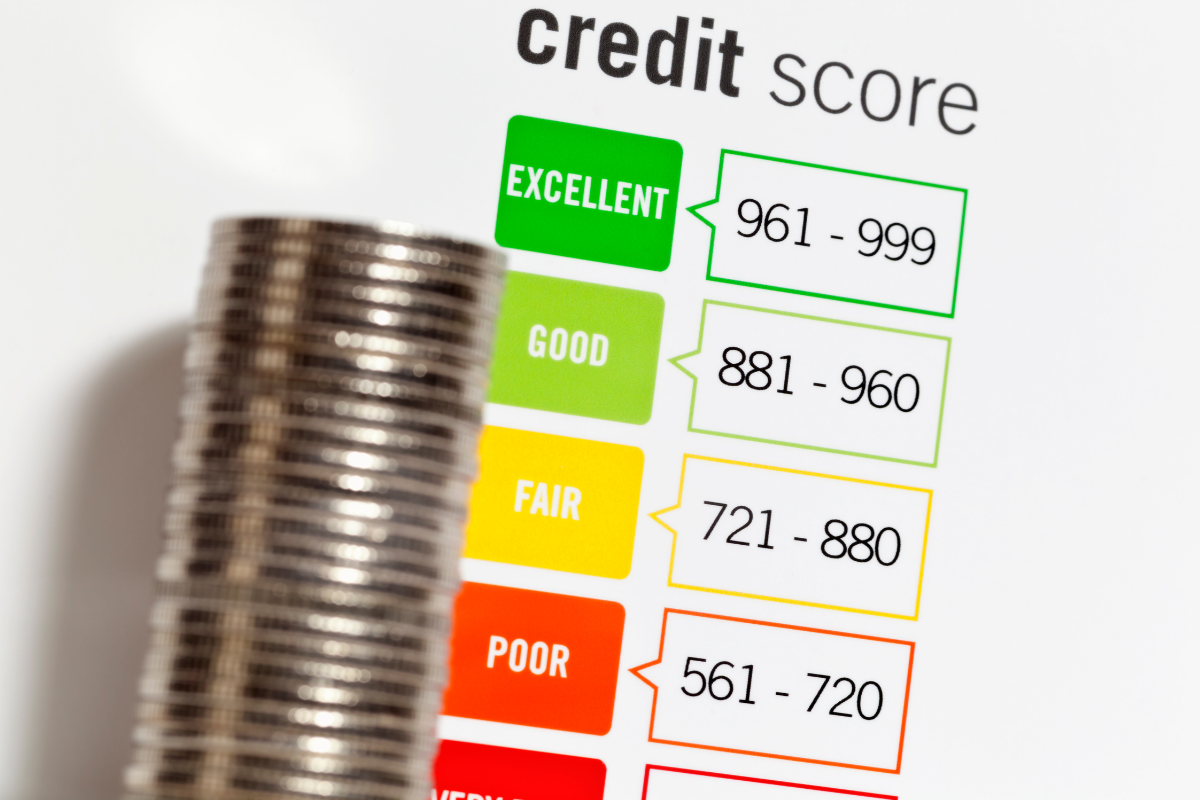In Singapore, applying for a loan involves more than just filling in a form and waiting for approval. Whether you are looking to finance an emergency, cover a medical bill, or consolidate debt, your credit score plays a crucial role in determining whether your application will be approved. However, not all lenders view credit scores the same way. A licensed money lender Singapore may evaluate your financial situation differently from a bank, offering you more flexibility even when your credit score is less than ideal. This article explores how low your credit score can go before it becomes a barrier, and what factors lenders actually consider when assessing your eligibility for a personal loan in Singapore.
Understanding Credit Scores in Singapore
A credit score in Singapore reflects your creditworthiness based on your past financial behaviour. It is calculated and maintained by the Credit Bureau Singapore (CBS), which collects data from banks, financial institutions, and licensed money lenders. The score typically ranges from 1000 to 2000, with a higher score indicating stronger creditworthiness.
A person with a score above 1900 is considered low-risk, meaning they are very likely to make repayments on time. Those with scores below 1600, on the other hand, are viewed as higher-risk borrowers. Low scores may result from late payments, missed instalments, overextended credit limits, or having multiple outstanding debts. Even so, a low credit score does not necessarily disqualify you from borrowing, especially if you approach a licensed money lender Singapore rather than a traditional bank.
Why Credit Scores Matter
Lenders use credit scores to gauge how likely you are to repay a loan. A high score means you are financially reliable, while a lower one signals potential risk. Banks in Singapore tend to be strict with their credit requirements, often rejecting applications with poor credit histories outright. Their evaluation is primarily score-driven, with little flexibility.
Licensed money lenders in Singapore, however, adopt a more holistic view. While they do take credit scores into account, they also consider other financial and personal factors. This means that even if your credit score is on the lower side, you may still be eligible for a personal loan in Singapore if you can demonstrate stable income or reliable employment.
Minimum Credit Score for Loan Eligibility
There is no fixed national minimum credit score for obtaining a personal loan in Singapore, as requirements differ between financial institutions and money lenders. Generally, banks prefer borrowers with scores above 1800, while licensed money lenders may approve loans for those with lower scores, provided other conditions are met.
If your score falls below 1600, you may face challenges securing bank financing. However, a licensed money lender Singapore might still consider your application if you can show that your income is steady or that you have made efforts to improve your financial discipline. The flexibility of licensed lenders is what makes them an appealing choice for individuals with imperfect credit histories.
How Licensed Money Lenders Evaluate Borrowers
Licensed money lenders in Singapore are regulated by the Ministry of Law’s Registry of Moneylenders. This ensures they follow strict rules regarding transparency, fair treatment, and interest rates. Unlike banks, which depend heavily on automated credit scoring systems, licensed lenders often assess borrowers through a more personalised process.
When reviewing an application, a licensed money lender Singapore may look at several aspects beyond your credit score:
- Income Stability – Your regular income is a key factor. Consistent monthly earnings demonstrate your ability to make repayments, even if your credit record is not perfect.
- Employment Type – Full-time employees, part-time workers, freelancers, and even self-employed individuals may all be eligible. Lenders consider your occupation and how steady your source of income is.
- Debt-to-Income Ratio – This compares your total debt obligations against your income. If your debts are manageable, your lower credit score might be less of a concern.
- Repayment History – Even if you have a few late payments in your record, showing a pattern of recent improvement can strengthen your application.
- Purpose of the Loan – Lenders also assess how you intend to use the funds. Using a loan for necessary expenses, such as education, medical bills, or debt consolidation, often reflects financial responsibility.
This comprehensive assessment enables licensed money lenders to support borrowers who might otherwise be excluded from the traditional banking system.

Licensed Money Lenders vs Banks
The main distinction between banks and licensed money lenders in Singapore lies in how they assess risk. Banks rely heavily on credit scores, automated approval systems, and rigid criteria. Licensed lenders, however, consider a borrower’s broader financial picture.
For example, someone with a low credit score but stable income may find it easier to obtain approval from a licensed lender than from a bank. Licensed money lenders also process applications faster, often providing same-day evaluations. This can be invaluable for individuals who need urgent financial help.
However, it is important to remember that licensed money lenders are still bound by legal interest rate limits and repayment terms. Borrowers should ensure they only approach lenders listed in the Ministry of Law’s official registry to avoid falling prey to unlicensed operators.
Common Alternatives for Low Credit Borrowers
If your credit score is low and you struggle to obtain a personal loan in Singapore, several alternatives can help you manage your financial needs responsibly:
- Guarantor Loans – Some licensed lenders may approve a loan if a trusted individual with a stronger credit profile acts as a guarantor.
- Smaller Loan Amounts – Applying for a smaller sum increases your chances of approval. Once you repay it on time, your credit history improves, allowing you to borrow larger amounts later.
- Secured Loans – Offering an asset such as jewellery or savings as collateral can reduce risk for the lender and improve your chances of approval.
- Debt Consolidation – If your goal is to manage multiple debts, consolidating them into a single, structured loan through a licensed lender may help reduce interest costs and simplify repayments.
- Salary Advance or Employer Schemes – Some companies in Singapore offer short-term advances or financial assistance to employees. This can be a practical alternative if you want to avoid additional borrowing.
These solutions not only provide temporary relief but also help you rebuild your financial reputation gradually.
Improving Your Credit Score
A low credit score does not have to be permanent. With discipline and consistent financial habits, you can strengthen your credit standing over time. Here are some practical ways to improve your score before applying for a personal loan in Singapore:
- Pay Bills on Time – Late payments are one of the biggest factors affecting your score. Automating bill payments can help ensure you never miss a due date.
- Reduce Outstanding Debts – Paying down existing credit card balances or loans lowers your debt-to-income ratio, which can positively influence your credit score.
- Avoid Applying for Multiple Loans Simultaneously – Too many loan enquiries within a short time can make you appear credit-hungry and reduce your score.
- Check Your Credit Report Regularly – Errors or outdated information can sometimes hurt your score. Review your report with the Credit Bureau Singapore and request corrections if needed.
- Maintain a Healthy Mix of Credit – Having a balanced combination of short-term and long-term loans demonstrates your ability to manage various forms of credit responsibly.
By taking these steps consistently, you not only increase your chances of approval but also qualify for better loan terms in the future.
Risks of Borrowing with a Low Credit Score
While licensed money lenders provide opportunities for individuals with poor credit, borrowers should still be cautious. Taking a personal loan in Singapore without proper planning can lead to further financial difficulties. The main risks include:
- Higher Interest Costs – Although licensed lenders follow legal caps, those with low credit scores may still receive less favourable rates compared to high-score borrowers.
- Strain on Finances – Failing to budget accurately for repayments can result in additional fees and late charges.
- Impact on Future Borrowing – Missing payments or defaulting can further reduce your credit score, making future borrowing even harder.
- Stress and Anxiety – Managing multiple debts or repayments can cause emotional and mental strain, especially without proper financial planning.
The key is to borrow only what you truly need and ensure that repayment plans align with your income level. Responsible borrowing will help you regain financial stability while avoiding unnecessary risks.
The Role of the Ministry of Law’s Registry of Moneylenders
Before engaging any licensed money lender Singapore, always verify their registration status through the Ministry of Law’s website. This registry ensures that all licensed lenders comply with government regulations, including fair interest rates, ethical collection practices, and clear loan contracts. Borrowers should also read every clause in the loan agreement carefully and seek clarification if needed.
Unlicensed or illegal lenders often promise easy approvals but charge excessive interest rates or use unethical practices. Protecting yourself by working only with verified licensed money lenders safeguards both your finances and your peace of mind.
Final Thoughts
Your credit score is an important indicator of financial reliability, but it does not define your worth as a borrower. A low score may limit your options with banks, yet a licensed money lender Singapore can still provide a feasible pathway to credit access, particularly if you can show consistent income and financial discipline.
When seeking a personal loan in Singapore, remember that transparency, responsibility, and planning are key. Understand your credit profile, explore alternative options, and choose licensed lenders who operate within the law. By taking these steps, you can regain control over your financial journey, rebuild your credit standing, and move forward with confidence.
A credit score may influence how the financial world sees you today, but your consistent effort and commitment to good financial habits determine what it will look like tomorrow.




